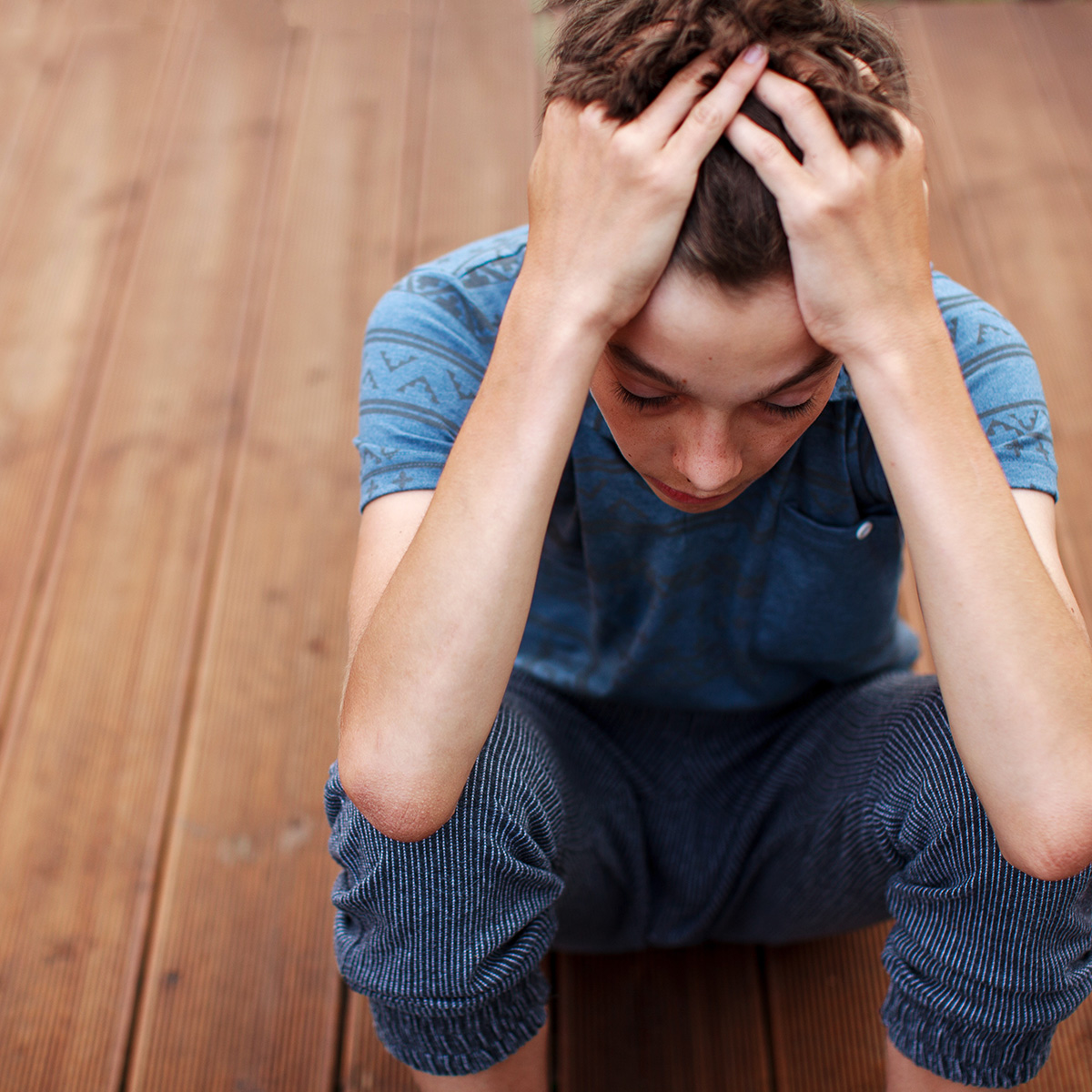Table of Contents
 We’re living in stressful times, and our kids are feeling it. Last fall, a coalition of leading pediatric medical groups declared a national emergency in child and adolescent mental health. We know that many of the stresses our children are experiencing were in place before the pandemic. However, social isolation and a sense of loss have added to existing mental health challenges for many children and teens. As cases of anxiety in adolescents rise, parents and pediatricians play an essential role in helping kids address and manage mental health challenges. Your family pediatrician is an excellent resource and the best place to start if your teen shows signs of anxiety.
We’re living in stressful times, and our kids are feeling it. Last fall, a coalition of leading pediatric medical groups declared a national emergency in child and adolescent mental health. We know that many of the stresses our children are experiencing were in place before the pandemic. However, social isolation and a sense of loss have added to existing mental health challenges for many children and teens. As cases of anxiety in adolescents rise, parents and pediatricians play an essential role in helping kids address and manage mental health challenges. Your family pediatrician is an excellent resource and the best place to start if your teen shows signs of anxiety.
What Are The Signs of Anxiety in Adolescents?
The American Academy of Child and Adolescent Psychiatry identifies a range of symptoms and warning signs of adolescent anxiety, including:
- Excessive fears and worries
- A tendency to be excessively wary and vigilant
- Continual nervousness, restlessness, or extreme stress
- Appearing dependent, withdrawn, or uneasy in social settings
- Preoccupation about losing control or unrealistic concerns about social competence
- Physical symptoms, including muscle tension and cramps, stomachaches, headaches, pain in the limbs and back and fatigue
What Causes Anxiety in Teens?
The COVID-19 pandemic has added to mental health challenges for many teens. But anxiety was on the rise before the pandemic. Here are some of the causes and risk factors for anxiety in adolescents:
- Genetics are a factor: many anxious teens have parents or other family members with anxiety.
- Hormonal changes related to puberty can exacerbate stress.
- Environmental factors, including changes in the school setting, can cause anxiety.
- When young people experience trauma or loss, it can lead to long-term anxiety and depression.
- There’s evidence linking social media to anxiety in some teens while it’s an empowering source of connection for others. As Harvard University researcher Emily Weinstein puts it, anxiety is often caused by the social stressors that social media facilitates rather than the platforms themselves.
- The pandemic is bringing anxiety and mental health issues to the forefront. Mental health challenges in children and teens were rising before the pandemic. But according to the U.S. Surgeon General, the pandemic added to existing mental health challenges with disruption to in-person schooling and social opportunities with peers.
How Can Parents Help With Anxiety in Adolescents?
Talking with your teen and letting them know you’re listening is an excellent place to start. Check-in with your child about social media use and seek balance. However, many teens need more than their parents’ support. Talk with your family pediatrician and seek professional help if needed.
 When Should I Contact a Professional About My Child’s Anxiety?
When Should I Contact a Professional About My Child’s Anxiety?
Some signs that it’s time to talk with a professional about your teen’s anxiety include:
- Anxiety significantly disrupts your teen’s life.
- Your teen’s anxiety lasts more than a few months.
- You suspect substance abuse or suicidal ideation.
Your trusted pediatrician is often the best place to start. Your child’s pediatrician can address both mental and physical aspects of anxiety. They know your child’s medical history, including underlying conditions that can impact mental health. As your child’s trusted physician, your pediatrician can get the conversation going and make referrals as needed.
What Are Treatments for Anxiety in Adolescents?
An individualized plan is the best approach for treating teen anxiety, often involving a combination of talk therapy and medication. Treatment options include:
- Cognitive-behavioral therapy
- Family therapy
- Medications
- Exercise and helping your child establish a regular sleep schedule
- In-patient treatment in cases of suicidal ideation and substance abuse.
At Loudoun Pediatric Associates, our providers are trained to provide medical and emotional support to adolescent patients. We are incredibly proud to have an adolescent medicine specialist, Dr. Lindsay Roach, on our team. Dr. Roach specializes in mental healthcare, reproductive health, eating disorder medical support and other teen-focused care. We recognize that adolescents and young adults often need specialized medical care. Finding a provider to share their physical and emotional concerns can make all the difference.







